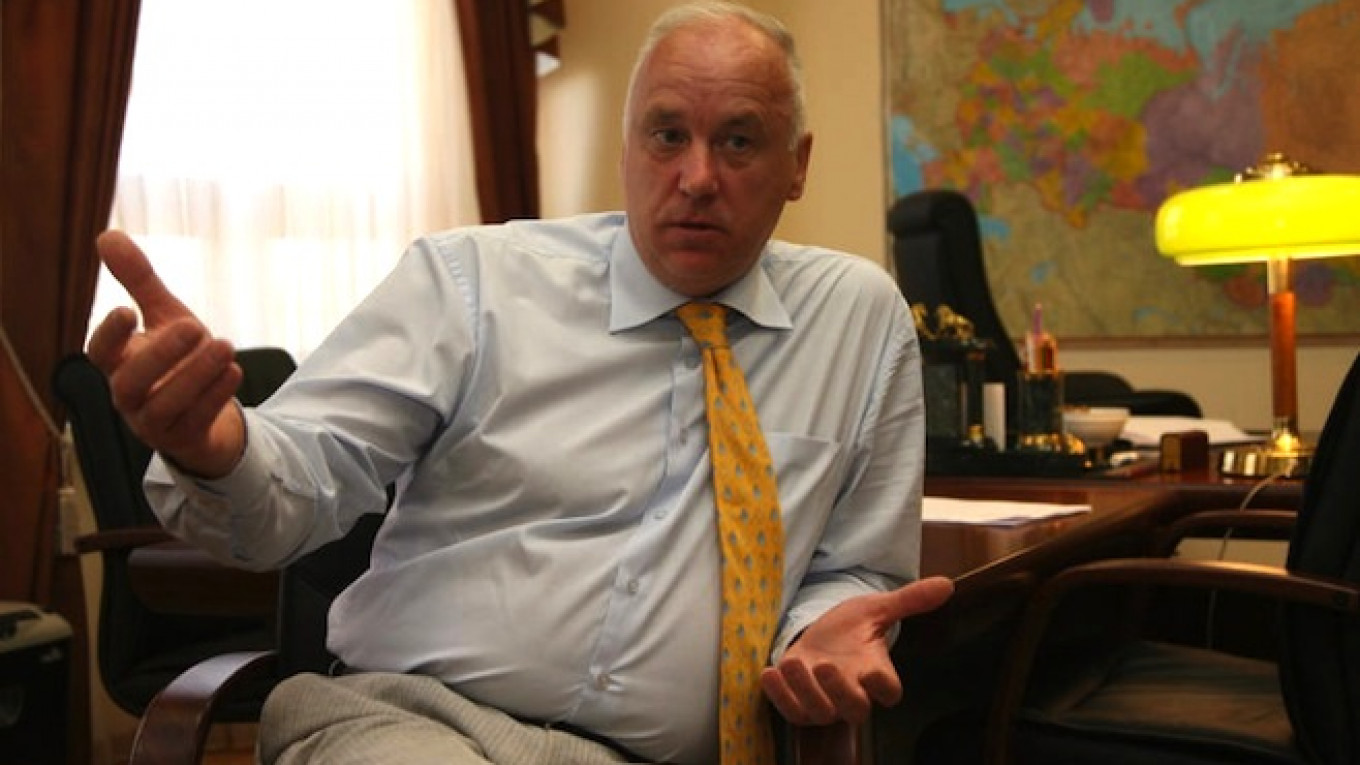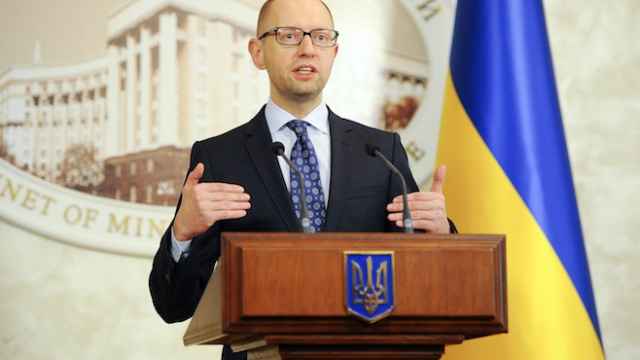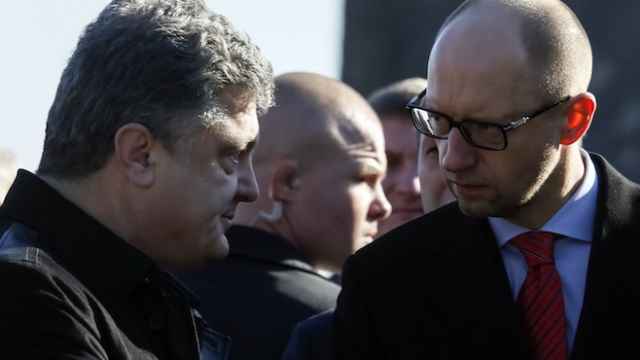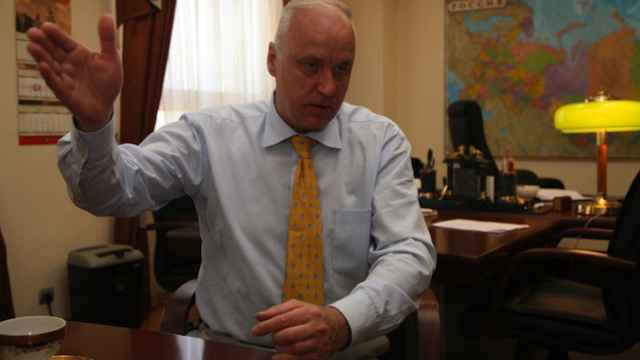Ukrainian Prime Minister Arseniy Yatsenyuk's spokeswoman suggested on Tuesday that the chairman of Russia's Investigative Committee Alexander Bastrykin undergo a psychiatric evaluation after he accused Yatsenyuk of fighting alongside Chechen rebels in the 1990s and torturing Russian soldiers.
“We advise the Russian authorities to conduct a psychiatric evaluation of the chief of Russia's Investigative Committee, [Alexander] Bastrykin,” the prime minister's spokeswoman Olha Lappo wrote on her Facebook page late Tuesday night.
The latest spat between Moscow and Yatsenyuk's office began on Tuesday when Russia's government daily Rossiiskaya Gazeta published an interview with Bastrykin, in which he accused the Ukrainian prime minister of having fought alongside Chechen rebels when they battled Russian troops in the region's capital Grozny during the separatist war of 1994-96.
“According to investigative data, Arseniy Yatsenyuk took part in at least two armed clashes, which took place on Dec. 31, 1994, on Minutka Square in Grozny, and in February 1995, near city hospital No. 9 in Grozny, as well as in the torture and executions of captured servicemen of the Russian army in the Oktyabrsky district of Grozny on Jan. 7, 1995,” Bastrykin was quoted as saying by Rossiiskaya Gazeta.
According to both the Ukrainian prime minister's biography on his official website, and to a report published last year by Russia's state-run news agency RIA Novosti, Yatsenyuk — who was 20 in 1994 — served as president of a legal firm in his native western Ukrainian city of Chernivtsi in 1992-97.
During this time he was attending a Chernivtsi law school, from which he graduated in 1996, according to the official biography and to RIA Novosti.
When Ukraine's popular street protests toppled the country's Russian-backed administration last year, Moscow denounced the new government as “fascist” and began filing charges against the leaders of the uprising.
The Investigative Committee announced in March 2014 that it had opened a criminal case against Ukrainian nationalists — including the head of far-right Svoboda political party Oleh Tyahnybok, and the leader of the ultranationalist Right Sector movement Dmytro Yarosh — accusing them of having fought alongside Chechen rebels against Russian troops during the 1994-96 war.
This spring, the committee announced the completion of its investigation and listed several suspects in the case, but until Tuesday, Yatsenyuk's name had not been mentioned in the Investigative Committee's statements.
Bastrykin's newest accusation to Rossiiskaya Gazeta follows a series of charges Moscow has brought against Kiev loyalists.
The accused include pilot Nadezhda Savchenko — who has emerged as a symbol of Ukrainian resistance at home, but who is on trial in Russia on charges of abetting the killing of Russian journalists in Ukraine. Western governments and Kiev have been seeking her release.
Another high-profile case is that of Oleg Sentsov, the Ukrainian film director who opposed Moscow's annexation of Crimea, and whom a Russian court in August sentenced to 20 years in prison on charges of masterminding a terrorism plot.
After Bastrykin's latest claim against Yatsenyuk, Lappo, the spokeswoman, cited those cases as additional evidence of what she described as the insanity of Russia's chief investigator and other associates of President Vladimir Putin.
“This is the same Bastrykin, who along with other psychopaths, has cynically condemned Nadezhda Savchenko, Oleg Sentsov and other Ukrainian patriots,” Lappo said. “Goebbels and the Nazi propaganda machine would give a standing ovation to Putin's team.”
In addition to the criminal cases, Moscow has accused Kiev loyalists of various atrocities in a series of state-run television reports, many of which have been exposed as false.
Contact the author at [email protected]
A Message from The Moscow Times:
Dear readers,
We are facing unprecedented challenges. Russia's Prosecutor General's Office has designated The Moscow Times as an "undesirable" organization, criminalizing our work and putting our staff at risk of prosecution. This follows our earlier unjust labeling as a "foreign agent."
These actions are direct attempts to silence independent journalism in Russia. The authorities claim our work "discredits the decisions of the Russian leadership." We see things differently: we strive to provide accurate, unbiased reporting on Russia.
We, the journalists of The Moscow Times, refuse to be silenced. But to continue our work, we need your help.
Your support, no matter how small, makes a world of difference. If you can, please support us monthly starting from just $2. It's quick to set up, and every contribution makes a significant impact.
By supporting The Moscow Times, you're defending open, independent journalism in the face of repression. Thank you for standing with us.
Remind me later.






